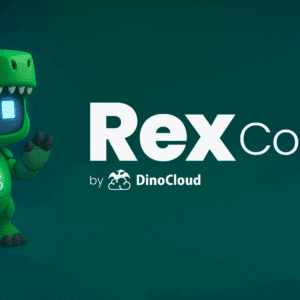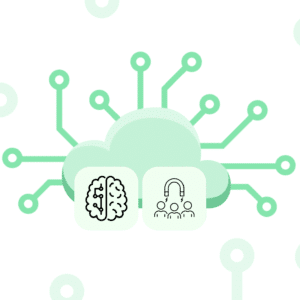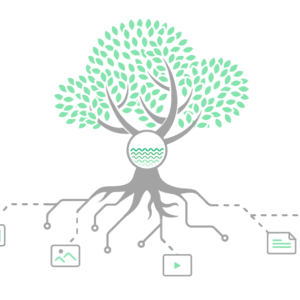Imagine preparing for a major move to a new home. The excitement is palpable, filled with dreams of a fresh start. Yet, as the move approaches, the enormity of the task becomes clear. Packing, securing your belongings, and choosing a reliable moving company become top priorities.
Businesses face a similar scenario when moving to the cloud. Cloud migration offers flexibility, scalability, and cost savings. Yet, it’s a complex process with risks like data loss, security threats, and project slowdowns.
Reliable cloud migration solutions serve as the answer. They are like a dependable moving company for businesses, ensuring a smooth transition to the cloud. These solutions provide the necessary expertise, tools, and support to overcome challenges and maximize cloud benefits.
Whether you’re a small startup looking for affordable cloud migration options or a large corporation needing top-rated cloud migration providers, choosing the right solution is critical for success.
At Cloud Migration Experts, we understand the challenges of cloud migration. Our cloud migration services are designed to meet diverse industry needs. With our secure and expert cloud migration assistance, we ensure a seamless transition, reducing disruptions and amplifying cloud benefits.
Understanding the Need for Cloud Migration Solutions
Transitioning to the cloud unlocks strategic gains for businesses. It streamlines operations and fosters future expansion. These advantages are vital for optimizing business performance.
Strategic Benefits of Cloud Environments
Cloud environments offer unparalleled scalability. This ensures organizations can meet dynamic needs efficiently. Businesses can adjust resources without additional costs for hardware or infrastructure.
Enhanced accessibility is another key benefit. It allows seamless information access worldwide, promoting collaboration. This encourages effective communication and teamwork, transcending geographical boundaries.
Significant cost savings are achieved by moving to the cloud. This shift reduces hardware and maintenance costs, freeing up resources for innovation, research, or expanding market reach.
Overcoming Migration Challenges with Right Tools
Migrating to the cloud, though beneficial, poses challenges. Overcoming these obstacles requires the smart use of cloud migration solutions and tools.
These solutions ensure a smooth migration process. They assess current infrastructure, minimize risks, and maintain data integrity. This guidance is essential for a successful migration.
Essential tools help tackle common migration difficulties like data loss and security threats. They facilitate a disruption-free process, allowing businesses to fully utilize cloud benefits.
| Benefit | Description |
|---|---|
| Increased Scalability | Cloud environments allow businesses to adjust resources based on demand, enabling efficient scaling up or down without additional costs. |
| Improved Accessibility | Cloud environments enable easy access to data and applications from anywhere, promoting collaboration and remote work. |
| Cost Savings | By eliminating the need for on-premises hardware and reducing maintenance costs, businesses can achieve significant cost savings. |
| Overcoming Migration Challenges | The right tools and solutions facilitate a smooth migration process, helping businesses overcome common challenges such as data loss, security vulnerabilities, and project delays. |
The Anatomy of Seamless Cloud Migration Process
For a smooth cloud migration, organizations must plan each step carefully. This includes assessing pre-migration needs, planning, verifying data integrity, and ensuring business continuity through monitoring. It’s a blend of strategy, technical expertise, and continuity plans.
Pre-Migration Assessment and Planning
Assessing your current IT setup is the first step. It involves checking hardware, software, and network health for any issues. This helps identify which parts of your IT are cloud-ready and which need adjustments.
Planning is essential for success. You need clear objectives, a defined strategy, and realistic timelines. Security planning is also critical to protect your data during migration. These steps prepare you for a smooth transition.
Data Replication and Integrity Checks
Moving your data to the cloud safely is vital. The right tools are needed to replicate data accurately. This lays the groundwork for your digital continuity.
After moving your data, checking its integrity is essential. Ensuring data isn’t lost or altered during migration reduces risks. These checks enhance the reliability of your cloud setup.
Ensuring Business Continuity with Performance Monitoring
Keeping operations stable during migration is a top priority. Performance monitoring helps catch and solve issues in real time. This maintains business continuity, even during transition.
Post-migration, ongoing monitoring is critical. It keeps the cloud environment aligned with performance standards. It optimizes operation efficiency over time and supports future upgrades.
Following these steps ensures a successful cloud migration. It guarantees a smooth transition, without major disruptions. This way, companies can fully embrace the cloud’s advantages.
Cloud Migration Solutions: What to Look For
Evaluating Compatibility and Scalability
Businesses at the forefront of technology must assess cloud migration solutions’ compatibility and scalability. The chosen solution should seamlessly integrate with current systems and support future growth. This ensures a smooth experience and avoids setbacks.
Compatibility checks how well a solution merges with existing applications and data. It’s vital to verify if the migration path supports various data and apps, facilitating a seamless cloud transition.
Scalability is also key. A robust solution should dynamically adjust resources to meet evolving workloads. This flexibility helps avoid bottlenecks and maximizes operational efficiency in the cloud.
Analyzing Cloud Migration Tools’ Security Features
Security is fundamental in cloud migration endeavors. Organizations must thoroughly evaluate the security capabilities of their prospective migration tools. This is essential for safeguarding confidential information, reducing cybersecurity breaches, and complying with data protection laws.
Highlighting security features, ensure the solution provides encryption for data protection during transit and storage in the cloud. Also, evaluate access control, authentication processes, and secure data transmission protocols. These aspects are critical for maintaining data security, ensuring its integrity and availability throughout migration and ongoing operations.
Choosing a migration partner known for its data security commitment offers peace of mind. This partnership, based on robust security practices, inspires trust in data protection throughout the migration journey. It enhances the cloud environment’s benefits.
| Key Considerations | Evaluating Compatibility and Scalability | Analyzing Security Features |
|---|---|---|
| Assess current IT infrastructure | ✔ | |
| Evaluate support for different types of applications and data | ✔ | |
| Ensure scalability to accommodate future growth | ✔ | |
| Verify encryption capabilities | ✔ | |
| Consider access control and authentication mechanisms | ✔ | |
| Review secure protocols for data transfer | ✔ |
Top Cloud Migration Solutions for Your Business
Choosing the right cloud migration service is essential for your business. The market offers a variety of cloud migration services, each catering to different needs. We will dive into these options, comparing their features and specialties.
Vendor Offerings and Their Specializations
Cloud migration vendors provide tailored solutions for various business needs. Some focus on specific industries or application types, while others offer a wide range of services. It’s important to select a vendor with the right expertise and experience in your field for a successful migration.
When evaluating a vendor, consider their reputation, customer feedback, and case studies. Also, look at the support they offer. Having skilled assistance is critical for a seamless and efficient cloud migration.
Comparing Features of Prominent Cloud Migration Services
When comparing cloud migration services, focus on features that align with your business goals. Key aspects include scalability, compatibility, security, performance monitoring, and cost-effectiveness.
- Scalability: Look for services that can grow with your business. Easy scalability is essential to manage resources effectively.
- Compatibility: Ensure the service can migrate your applications and data securely. Compatibility with your current setup is critical.
- Security: Examine the security features of each service. Strong encryption, threat detection, and access controls are vital for data protection.
- Performance Monitoring: Services with tools for monitoring and optimizing performance are valuable. These tools help identify and solve performance issues.
- Cost-effectiveness: Evaluate the financial aspects of each solution. Consider ongoing costs and any hidden expenses. Look at the total cost of ownership.
By comparing services based on these criteria, you can make an informed decision. This ensures your choice aligns with your business’s needs and objectives.
In conclusion, we will discuss the key benefits of cloud migration solutions for a streamlined and effective cloud transition.
| Cloud Migration Service | Specializations | Scalability | Compatibility | Security Features | Performance Monitoring | Cost-effectiveness |
|---|---|---|---|---|---|---|
| Vendor A | Specializes in healthcare industry | ✓ | ✓ | ✓ | ✓ | ✓ |
| Vendor B | Offers a broad suite of migration services | ✓ | ✓ | ✓ | ✓ | ✓ |
| Vendor C | Specializes in e-commerce applications | ✓ | ✓ | ✓ | ✓ | ✓ |
Conclusion
For companies aiming for a smooth cloud transition, migration solutions are essential. They address the challenges of cloud migration and provide tools for a successful move.
Before migrating, thorough assessment is critical. It helps evaluate your current IT setup. This preparation ensures a well-planned migration process. It identifies cloud-ready apps and data and addresses risks in advance.
Tasks like data replication and integrity checks are vital. They ensure data moves accurately from local setups to the cloud. This practice reduces data loss risks and maintains data integrity. Performance monitoring tools keep the cloud setup running smoothly, avoiding disruptions to business operations.
Using these solutions, companies can migrate their apps and data to the cloud effortlessly. They enjoy benefits like scalability, cost savings, and improved teamwork. In essence, moving to the cloud opens up a more flexible and expandable digital frontier.
FAQ
What are cloud migration solutions?
Cloud migration solutions are vital for businesses transitioning from on-premise to cloud environments. They encompass tools, services, and expert advice. These resources facilitate the seamless transfer of applications, data, and infrastructure to the cloud.
Why do businesses need cloud migration solutions?
Adopting the cloud poses various hurdles for companies, from safeguarding data to managing project timelines. Cloud migration solutions are critical in addressing these challenges. They ensure a seamless transition to the cloud environment.
What are the strategic benefits of cloud environments?
Cloud environments offer significant strategic advantages. They enhance scalability and accessibility to applications and data, leading to substantial cost savings. These benefits arise from eliminating the need for on-premise hardware and reducing maintenance expenses.
How do cloud migration solutions overcome migration challenges?
Cloud migration solutions excel in orchestrating a flawless transition to the cloud. They provide pre-migration assessments, data replication, and performance monitoring. These tools and services ensure minimal disruptions during the migration process.
What is involved in a seamless cloud migration process?
A seamless cloud migration begins with thorough assessment and detailed planning. It encompasses steps like data replication and integrity checks. Continuous performance monitoring is essential to uphold business operations during the migration.
What factors should businesses consider when selecting cloud migration solutions?
When selecting cloud migration solutions, businesses must evaluate several key factors. Compatibility and scalability with their current infrastructure are essential. A strong emphasis on security features and capabilities is also critical.





